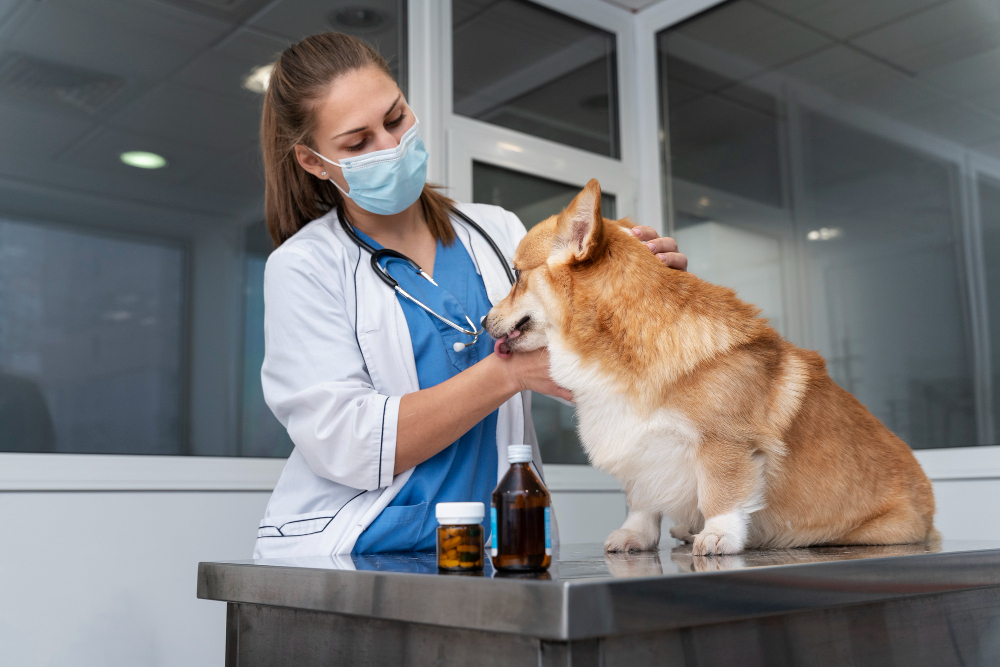Career counselling
Get expert advice to identify your strengths and choose the right career path.



Companion animal care, pet medicine, surgical procedures, emergency medicine, and general practice for dogs, cats, and exotic pets.
Livestock health, cattle medicine, equine practice, herd health management, and production animal veterinary services.
Horse health care, equine sports medicine, reproduction, lameness, surgery, and specialized equine veterinary practice.
Exotic animal medicine, zoo veterinary care, wildlife rehabilitation, conservation medicine, and non-domestic animal health.
Disease diagnosis, laboratory medicine, histopathology, clinical pathology, and diagnostic veterinary services.
Drug therapy, pharmaceutical research, toxicology, veterinary drug development, and clinical pharmacology.
Zoonotic diseases, food safety, public health surveillance, disease control, and One Health approaches.
Veterinary emergency medicine, intensive care, trauma surgery, critical patient management, and specialty emergency practice.


Get expert advice to identify your strengths and choose the right career path.
Receive personalized recommendations on courses that best fit your goals.
Guidance to find and apply for scholarships that ease your financial burden.
Step-by-step help with applications, documents, and meeting university requirements.
Support in understanding and securing the best loan options for your studies.
Assistance in navigating the visa process, from documentation to interviews.
Requirements vary but most programs expect 200-1000+ hours documented animal experience. Should include diverse settings: veterinary clinics (essential), farms, shelters, research labs, zoos. Quality matters—seek hands-on involvement, not just observation. Start gaining experience early.
DVM (Doctor of Veterinary Medicine) is standard in North America, some European countries. BVSc (Bachelor of Veterinary Science) is undergraduate veterinary degree in UK, Australia, New Zealand. Both equivalent professional qualifications. Length varies: 4 years graduate-entry DVM or 5-6 year undergraduate BVSc.
Both rigorous but differently challenging. Veterinary school covers multiple species, smaller class sizes, more hands-on clinical work. Admission equally competitive—vet school acceptance rates often lower than medical schools. Both require exceptional academic performance, dedication, and specific prerequisites.
Veterinary qualifications generally recognized but may require additional exams or registration. Most countries require licensure exams for foreign graduates. NAVLE in USA, MRCVS in UK. European degrees recognized within EU. Research specific country requirements early.
Varies by practice type. Small animal clinic: 40-50 hours weekly, some evening/weekend work. Emergency practice: shift work including nights. Large animal/farm vets: unpredictable hours, emergency calls. Academic/research: more regular hours. Private practice owners set own schedules.
New graduates: $60K-$90K depending on country and practice type. Experienced veterinarians: $80K-$120K. Specialists after residency: $100K-$200K+. Emergency medicine, specialty practices typically highest paying. Practice owners can earn significantly more. Location and specialization major factors.
Most veterinarians practice general medicine—no specialty training required. Specialization optional requiring 3-4 years residency after DVM plus board certification. Specialists include surgery, internal medicine, cardiology, dermatology, etc. General practice rewarding career—specialization personal choice.
Many veterinarians combine both! Academic positions blend clinical work with research. Industry jobs at pharmaceutical companies involve research with clinical applications. Some private practitioners conduct research part-time. Graduate degrees (MS, PhD) alongside DVM enhance research opportunities.
Gain extensive animal experience first. Shadow multiple veterinarians in different practice types. Consider emotional demands—euthanasia, difficult clients, physical demands. Requires science aptitude, compassion, communication skills, business acumen, physical stamina. If passionate about animal welfare and medicine, pursue it!
Strengthen application—gain more animal experience, improve grades, retake entrance exams. Pursue veterinary nursing/technology first. Complete master's in related field (animal science, public health). Work as veterinary assistant gaining experience. Reapply—many successful veterinarians didn't get in first try.